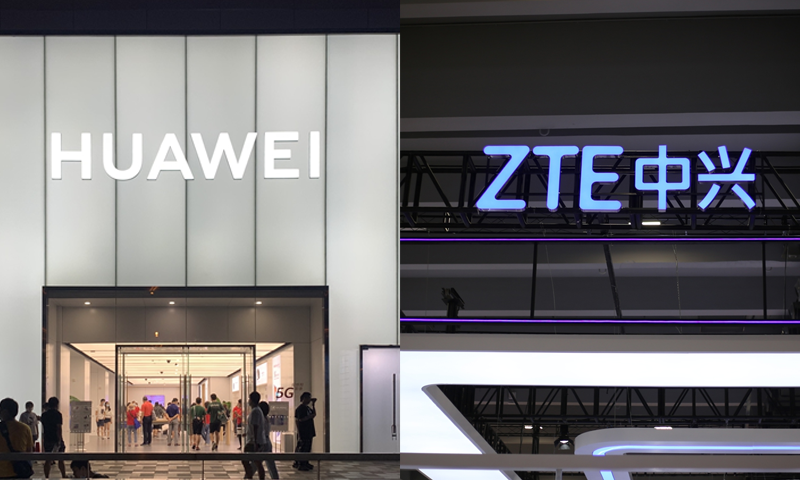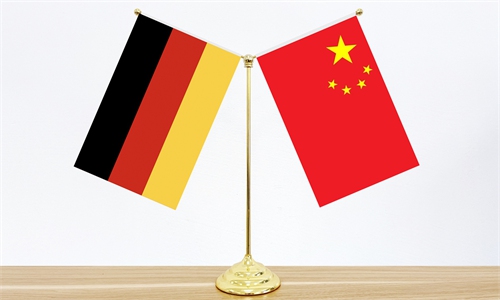Germany’s decision on Huawei, ZTE 5G issue to ‘block its digital devt, harm mutual trust’

Huawei and ZTE. Photo: VCG
A spokesperson from the Chinese Embassy in Germany expressed strong dissatisfaction and resolute opposition on Thursday night to Germany's decision to phase out Huawei and ZTE telecom gear from its 5G network, warning that the move will seriously undermine the mutual trust between the two sides and will also affect future cooperation between China and the EU in related fields.
Chinese experts on Friday said Germany's decision suggests that it is under increasing pressure from the US and the EU, and warned that the removal of Chinese components from its 5G network will have a significant cost and hinder the country's communications development.
Reuters reported on Thursday that under the preliminary agreement driven by "security considerations," the German government and telecom carriers in the country have agreed in principle on steps to take out components made by Chinese companies from the nation's 5G wireless network over the next five years.
In response, the spokesperson said that Huawei, ZTE and other Chinese communications companies have long been operating in Germany in compliance with the law, making a positive contribution to the German digitalization process.
The Huawei, ZTE 5G issue is essentially a move by individual countries to suppress their competitors in order to safeguard their own scientific and technological hegemony, the spokesperson said, noting that the so-called cybersecurity risk is nothing more than a pretext. In fact, no country has so far produced any conclusive evidence of the existence of security risks in the equipment of Chinese enterprises, the spokesperson added.
"The German side's announcement of the decision as the NATO Summit is held in Washington has further caused China to seriously question the independence of its decision-making," the spokesperson noted.
"Germany's move can be seen as politicizing economic cooperation, as the country is now facing more pressure from the US and the EU," Sun Yanhong, a senior research fellow at the Institute of European Studies of the Chinese Academy of Social Sciences, told the Global Times on Friday.
Openness is mutual, and China's 5G construction has always been open to European companies such as Nokia and Ericsson. China has never seen these companies as a security threat. Germany's move is naked political discrimination, which seriously undermines the mutual trust between the two sides and will also affect future cooperation between China and the EU in the relevant fields, said the spokesperson.
Sun noted that Germany's digital infrastructure is relatively backward, while Huawei and ZTE's equipment is leading in terms of technology, integrated solutions and cost-effective products.
"The cost of the transition is expected to be significant, and will limit the development of all areas of the country's digital economy including smart driving, smart healthcare and manufacturing automation factory," the expert warned.
The German and European sides cannot, on the one hand, demand fair competition while on the other hand discriminate against companies from other countries on the basis of unfounded so-called potential security risks, said the spokesperson.
Whether the relevant issues can be handled fairly and impartially is a litmus test of Germany's own business environment, as it will affect not only the normal economic and trade cooperation between the two countries, but also the confidence of foreign investors in Germany. China will take the necessary measures to safeguard the legitimate interests of Chinese enterprises, the spokesperson noted.
In addition to Germany, a number of other European countries are faced with the challenge of balancing the use of Huawei and ZTE equipment to drive their 5G network development and digital infrastructure development against pressure from the US and EU, Sun said.
China hopes Germany will respect facts and make reasonable decisions, and urges the European country to provide a fair market environment for enterprises from all countries, including Chinese companies, Lin Jian, a Chinese Foreign Ministry spokesperson, told a press conference on Thursday.


